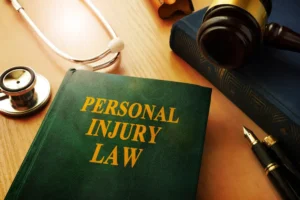In Texas, What Do I Need To Know Before Filing A Personal Injury Claim?~3 min read

A personal injury claim covers many different types of injuries: slip and fall accidents involving premises liability law, motor vehicle crashes, dog bites, medical malpractice, product liability, and any time you suffer an injury that was the fault of another person or company.
Before you file a personal injury claim, we invite you to schedule a free consultation with one of our personal injury attorneys at Springer & Lyle. We can evaluate the facts of your case and provide you what you need to know before filing a personal injury claim. Some specific areas you need to be familiar with under Texas law include the following.
Statute of Limitations. In Texas, in general, you must file your personal injury suit in court within two years of the date of the occurrence which caused your injury. Diligence must also be exercised in serving all potential defendants with a copy of the suit. This is referred to as the statute of limitations. If you miss the filing deadline, or if you do not serve defendant(s) with a copy of the suit within a reasonable time, you will be permanently barred from pursuing your claim.
If a governmental entity such as a state, county or city is involved, written notice to that entity within a much shorter time-frame must be sent as well. The notice will have to comply with Texas law and there may be additional claim requirements. Failure to comply with these notice and claim requirements can result in the waiver of your claim against the governmental entity, regardless of whether suit was filed within the statute of limitations. These notice periods can be just a few weeks long and can vary from one city or county to another.
Your attorney will discuss with you some exceptions to the rule that may apply, for example, to a claim for medical malpractice. The limitations periods on these case can be complex and are constantly evolving in the courts.
- Determining fault. Under Texas law, before you can collect damages, you must prove who was at fault for your accident. If you were partially at fault, your damage claim will be reduced by the amount of fault the court attributes to you. If you were more than 50 percent at fault, you will not be able to collect damages at all.
- Settlement negotiations. After your personal injury attorney investigates the facts of your case, and evaluates your damages, the next step is to negotiate with the insurance company of the person, business, or governmental entity who is considered at fault for the injury causing event. A fair settlement that provides reasonable compensation may be preferable than going to trial. An experienced attorney will help you do an economic analysis on your case which will take into account the expenses necessary to fully develop the case for trial.
You should also know that some insurance companies will make you a very low settlement offer shortly after your injury. The motivation is not to really compensate you for your injury, but to encourage you to sign away your right to go to court and ask for compensation that is just and fair. Be sure to consult an attorney before accepting any settlement offer.
The personal injury attorneys at Springer & Lyle can help you evaluate your case and achieve a resolution which is reasonable to compensate you for your injuries, lost wages, medical expenses, pain and suffering, and other physical damage. Contact us at 940-370-4033 for a free consultation.





